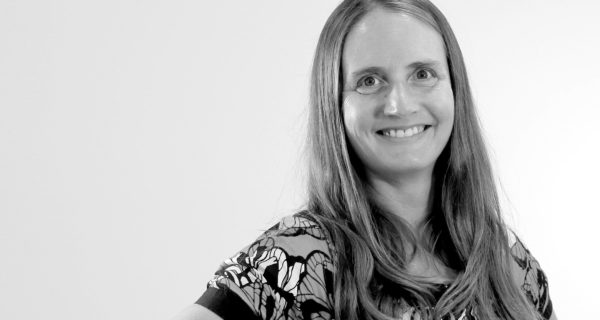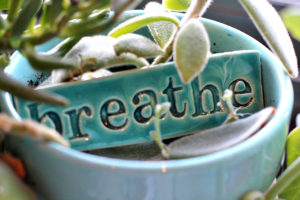
Melissa Rosenkranz
Assistant Professor of Psychiatry and Distinguished Chair in Contemplative Neuroscience at the Center for Healthy Minds
Hometown: Downers Grove, Illinois
Educational/professional background:
Ph.D., Psychology, University of Wisconsin–Madison
B.S., Psychology, University of Wisconsin–Madison
Previous position: Associate Scientist, Center for Healthy Minds
How did you get into your field of research?
Melissa Rosenkranz: As an undergraduate, I was really interested in the power of the mind over the body, even though I didn’t realize that was something I could do as a career or that it was its own field of study. When I started working with Richard Davidson just out of college, I was contributing to a study looking at the effects of meditation training on the immune response to the influenza vaccine. Ever since then, I’ve been the person interested in immune-related questions, which grew into my life’s work.
What attracted you to UW-Madison?
I began college as fine arts major. My high school studio art teacher suggested that UW-Madison would be a good place to consider because I wasn’t ready to commit myself to art school and wanted a broader education. He pointed out that UW-Madison had a very strong art department, but I could also get a great liberal arts education at the same time. I decided pretty quickly didn’t want to be art major because the pressure to produce art on rapid deadlines took the joy out of it for me. I then switched to science, and I actually think that science and art are similar in a lot of ways. I was drawn to the creativity inherent in science and the opportunity to try to understand unknown territory.
What was your first visit to campus like?
My first visit to campus was with two good friends from high school, and if that would have been the deciding factor, I never would have come here. It was one of those awful days in March that was brutally cold, gray and windy! As a first-generation college student, I didn’t really have many people around me to help me make the decision about where to attend, nor clear criteria that made me decide to come to UW–Madison. I looked to a person whom I trusted and who knew me well – my high school studio art teacher, who recommended this place.
What’s one thing you hope students who take a lecture or work with you will come away with?
In my position with the UW Department of Psychiatry, I’ll be giving lectures and working with students and professionals in training. This is an aspect of my position that I’m particularly excited about. It has always been a professional goal of mine to bring the knowledge I’ve developed over the years into the practice of medicine through working with future physicians, including medical residents, fellows and interns. My hope is that our latest understanding of mind-body interactions gets incorporated into how medicine is practiced – that it’s another potential route for promoting health and managing illness.
"My hope is that our latest understanding of mind-body interactions gets incorporated into how medicine is practiced – that it’s another potential route for promoting health and managing illness."
Do you share your expertise and experiences with the public through social media? If so, which channels do you use?
I am admittedly on the low end of the social media engagement continuum. It’s definitely not strong suit of mine. I’m interested in new ways to share knowledge, though, and am always looking for ways to connect with people outside of academia.
Do you feel your work relates in any way to the Wisconsin Idea? If so, please describe how.
I feel very strongly about academic work not remaining in the confines of the ivory tower; it’s actually one of the biggest frustrations I have as an academic. I want my work and the work in my field to impact the lives of everyday people more directly than it does now. My work lends itself very well to the Wisconsin Idea because it’s easy for people to relate to. When I start talking about what I do, most people have had experiences where they’ve had a particularly stressful time or when their emotions were very strong and they had health-related consequences. Many people are excited to know that we’re trying to better understand the mind-body connection and want to know how they can harness it to improve their own health and well-being, or that of a loved one.
Where I’d really like to have the biggest impact outside the confines of the university, though, is through policy. I don’t have an outlet for that yet, but it’s a direction that I hope my work will move into in the future.
What’s something interesting about your area of expertise you can share that will make us sound smarter at parties?
Most people boil the “mind-body connection” down to something along the lines of “stress can make you sick”. This is true, but it also can go in the other direction. Being sick, or having low levels of chronic inflammation in your body can also cause you to feel down or depressed because of the effect that immune activation has on your brain. This is also true of microorganisms. The microbes that live inside your body (your gut, lungs, etc.) influence your brain function and can even impact your emotions!
Any noteworthy hobbies or interests?
I’m an avid swimmer – that’s probably my true love, but I have countless other interests and hobbies. Many of my personal interests are tied to what I study—I’m interested in many health-related issues and I often read about different aspects of medicine. One area I’ve been exploring for a while is food as medicine and how it creates health or contributes to disease.






